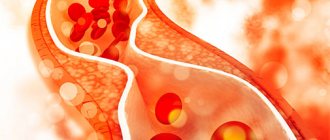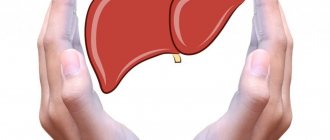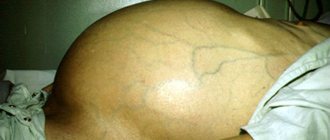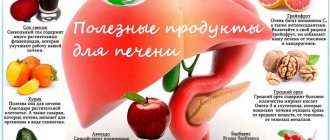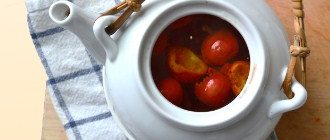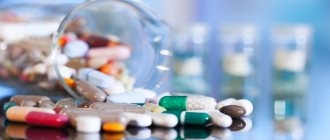The most important function of the liver is to detoxify the body. This organ acts as a kind of filter that removes all toxic substances from the blood and removes them from the body through the intestines. However, if the amount of toxins increases to a critical level, then the liver cannot cope with such a volume of work and the poisons settle in the cells of the organ itself.
Cleansing the liver with herbs will help restore the health of affected tissues, which effectively removes waste and toxins from the body and improves the functioning of all organs of the digestive system. But in order to properly carry out such cleansing procedures, you need to know: what herbs cleanse the liver, what medicinal properties they have and how to use them correctly.
Herbs for liver cleansing
Homemade recipes with herbs to cleanse the liver of toxins and toxins have been used in folk medicine for many centuries. Nowadays, they still remain relevant, as they have many advantages over drug therapy.
The main advantages of cleansing the liver with medicinal plants are the harmlessness and safety of this detoxification method, as well as its accessibility and simplicity. Thus, medicinal herbs can be used by patients of any age category - from preschool children to the elderly. Moreover, they are sold in any pharmacy at an affordable price - no more than 100 rubles.
Preparing herbal remedies does not require much time or effort. According to experienced herbalists, it is enough to add a small amount of the medicinal plant to regular green or black tea to significantly improve the condition of the liver.
Medicinal plants for liver health:
- Sandy immortelle;
- Milk thistle (milk thistle);
- Oat seeds;
- Corn silk;
- Chamomile flowers;
- Dill seeds;
- Beetroot;
- Dandelion root;
- Dog-rose fruit;
- St. John's wort.
For what diseases are herbs used to cleanse the liver:
- Fatty hepatosis;
- Acute and chronic hepatitis (infectious and non-infectious);
- Drug, toxic and alcohol damage;
- Cirrhosis;
- Cholelithiasis;
- Jaundice;
- Cholecystitis;
- Pancreatitis.
Herbs for cleansing the liver: medicinal properties and recipes
Medicinal herbs can be purchased at a pharmacy in the form of a liver mixture or prepared independently. However, when preparing medicinal raw materials with your own hands, you must follow several important rules: collect herbs only in environmentally friendly places, dry them in the shade under a canopy and store them in a place protected from sunlight.
When collecting medicinal plants, you must strictly adhere to the recommendations from experienced herbalists: cut off the above-ground part of the plant in dry weather, always collect the seeds when they are ripe, dig up the rhizomes in spring or autumn, and pick the flower only after the petals have fully opened.
Sandy immortelle
Immortelle is a unique herb that has a pronounced therapeutic effect on the liver, increases the tone of the gallbladder, activates the secretion of bile and increases the content of cholates in it, increases the flow of secretions through the biliary tract, prevents the precipitation of cholesterol and prevents the formation of stones.
Composition of immortelle herb:
- Essential oils;
- Flavonoids;
- Stearins;
- Tannins;
- Bitterness;
- Resins;
- Glycosides;
- Arenarine (natural antibiotic).
Useful properties of immortelle:
- Choleretic;
- Anti-inflammatory;
- Antibacterial;
- Antispasmodic
- Hemostatic.
Recipe for liver cleansing with immortelle:
- Pour 10 grams into a small saucepan. chopped immortelle herb and pour 1 glass of cold water;
- Cover with a lid and leave to steep in a water bath for half an hour. It is important to stir the infusion approximately every 5 minutes;
- Remove the pan from the heat and let the broth cool for about 10-15 minutes;
- Strain the finished product through two layers of gauze and squeeze thoroughly;
- Add boiled water to bring the amount of infusion to 200 ml;
- Pour the infusion into a glass jar and store in the refrigerator;
- Take 2 tbsp. spoons three times a day 15 minutes before meals.
Milk thistle
Milk thistle is another popular herb for cleansing and healing the liver.
The peculiarity of this plant is that it not only helps to stop the inflammatory process in the diseased organ, but promotes complete regeneration of the affected tissues.
It is for this reason that milk thistle is widely used for many liver diseases, including cirrhosis.
Composition of milk thistle:
- Flavonoids and flavonolignans (silibinin, silicristin, silydianin);
- Alkaloids;
- Saponins;
- Valuable oil;
- Biogenic amines (tyramine and histamine);
- Macro- and microelements (about 200 biochemical components).
Medicinal properties of milk thistle:
- Antioxidant;
- Restorative;
- Protective;
- Anti-inflammatory;
- Antiallergic.
Recipe with milk thistle to cleanse the liver:
- Take 30 gr. milk thistle seed powder and pour it into an enamel saucepan or stainless steel saucepan;
- Pour in 0.5 water and put on fire;
- Bring to a boil, reduce heat and leave to simmer without covering with a lid;
- When the volume of water in the container is reduced by half, remove the herbal decoction from the heat and cool;
- Strain the medicine, pour into a glass jar and store in a cool place, protected from light (can be in the refrigerator);
- For high-quality liver cleansing, take hourly for 10 hours every day. The course of treatment is 2 weeks;
- This remedy helps with alcohol and drug intoxication of the liver, as well as with mushroom poisoning.
Which hepatoprotector to choose
And now we will make our own rating of hepatoprotectors and tell you about the features of each of them.
Essential phospholipids
If you are interested in hepatoprotectors with proven effectiveness, then essential phospholipids are one of the top drugs. The history of their study goes back more than 50 years, and during this time they have proven their effectiveness and safety.
Essential means significant, necessary. And this definition fully applies to phospholipids, because they are one of the key components of the membranes of hepatocytes - liver cells.
Essential phospholipids of natural origin in the composition of the preparations are ideally close to the body’s own phospholipids. They “find” damage in cell membranes and integrate into them, thereby restoring the structure and function of hepatocytes.
Also, essential phospholipids help slow down the process of fat accumulation and reduce the activity of inflammation in the liver, improve the functioning of mitochondria - the “energy stations” of cells, and increase the detoxification function of the liver.
Essential phospholipids, 60 capsules, Evalar
842 ₽
Dietary supplement NOT A MEDICINE
Curcumin
This is the active substance of the “golden spice” turmeric, which, like a talented actor, is capable of playing many roles, including the role of a powerful hepatoprotector. Studies involving patients with fatty liver have shown that curcumin helps reduce fat content in liver cells. And when studying the protective properties of curcumin in animals, it turned out that it improves the structure of the liver, actively fights oxidative stress and suppresses inflammatory processes.
Additionally, curcumin has been called a “natural antibiotic” with antibacterial, antiviral and antifungal properties. And this is a big plus, because infections often attack the liver.
“But I love turmeric!” - you say. Great! Just remember one “BUT”! From the spice itself, curcumin is very poorly absorbed. Fortunately, scientists have learned to produce bioavailable curcumin by converting it into micellar form. This curcumin is absorbed perfectly – almost completely.
Curcumin, 30 capsules, Evalar
1 058 ₽
Dietary supplement NOT A MEDICINE
Milk thistle
In the “plant hepatoprotectors” group, this plant is undoubtedly at the very top. More precisely, the extract from milk thistle fruits is silymarin. Its ability to protect liver cells from the influence of negative factors (toxins, viruses, radiation, etc.) is confirmed by the results of clinical studies.
Silymarin acts in several directions at once:
- “disarms” free radicals and prevents the depletion of the antioxidant glutathione,
- improves liver detoxification function,
- exhibits anti-inflammatory properties,
- prevents the penetration of toxins into liver cells and has a protective effect on their membranes,
- stimulates natural self-healing processes in the liver by increasing protein synthesis.
Interesting fact! In case of poisoning with toadstool, silymarin prevents the penetration of the poisons of this fungus into the liver cells and thereby reduces the degree of its toxic damage. However, mushroom poisoning is a very dangerous condition, so in any case, attempts at self-medication are unacceptable!
Artichoke extract for the liver, 60 tablets, Evalar
435 ₽
Dietary supplement NOT A MEDICINE
Artichoke
“Not a day without an artichoke!” With such a saying, widely known in Ancient Rome, Pliny the Elder described one of the gastronomic preferences of his contemporaries. And for us today, the artichoke is valuable not only as a culinary delicacy, but also as a wonderful hepatoprotector.
Artichoke is distinguished by its high content of proteins, carbohydrates, vitamins C, B2, B6, carotene, minerals, aromatic substances and other components, thanks to which it helps restore liver cells and improve its function. Like many other natural hepatoprotectors, artichoke increases the antioxidant protection of liver cell membranes and its detoxification function, helps remove various toxins, heavy metal salts, radionuclides from the body, and has a choleretic effect.
Alpha lipoic acid, 100 mg, 30 capsules, Evalar
520 ₽
Dietary supplement NOT A MEDICINE
Oat seeds
Oats have a mild but at the same time effective cleansing effect on the liver.
It improves the composition of the blood, thereby significantly lightening the load on the diseased organ.
In addition, oats are one of the best folk remedies for restoring liver function after serious illnesses, such as hepatitis, food poisoning, alcohol and drug intoxication and much more.
Composition of oat seeds:
- Soluble fiber;
- α-tocotrinol;
- β-glucan;
- Propionate and acetate;
- Saponins;
- Essential amino acids (methionine, lysine and tryptophan);
- Vitamins and minerals.
Therapeutic effects of oats:
- Diuretic;
- Cleansing;
- General strengthening;
- Anti-inflammatory;
- Antipyretic;
- Normalizing (oats improve metabolism, reduce blood sugar and bad cholesterol).
Recipe with oat seeds to cleanse and treat the liver
- Take 100 gr. unhulled oat seeds, pour into a saucepan and pour 1 liter. cold water;
- Put on fire and wait for the water to boil;
- Reduce heat to low, cover with a lid and leave the product to infuse for 20-30 minutes;
- Remove the pan from the heat, cover with a towel and let the infusion cool;
- When the oatmeal broth becomes warm, strain it through a sieve and pour into a glass jar;
- Take 200 ml of the finished product. 4 times a day before meals. The course of treatment is 2 months.
Choleretic herbs: list with brief description
Choleretic tea, made from special medicinal herbs, is an effective remedy that helps relieve the condition during bile stagnation. A properly selected choleretic herb can:
- Eliminate stagnation of bile. This effect is achieved by the ability of certain herbs to liquefy and remove bile from the body.
- Stimulate the production of bile by liver cells.
- Activate the work of the bile ducts and relieve spasms. This improves the circulation and discharge of bile.
How to thin bile? For this, herbs that have a choleretic effect are used. I wonder what kind of choleretic herbs you should drink? A list of the most effective of them, as well as information on how to drink choleretic herbs correctly, is provided below:
Calendula officinalis
If you are looking for herbs for the gallbladder, pay attention to calendula officinalis.
Calendula flowers: Pixabay
Popularly, this plant is also called marigold. Calendula has the following pronounced actions:
- bactericidal;
- anti-inflammatory;
- antispasmodic;
- choleretic.
To improve the functioning of the gallbladder, a tincture or decoction of calendula flowers is suitable. To prepare the decoction, take 3 tbsp. l. dried flowers, fill them with water (300 ml) and put on fire. Let it boil and cook over low heat for another 5 minutes. Then leave to steep for a day. Drink 50 ml of the prepared decoction between meals.
Dandelion
Dandelion officinalis is a plant with a unique composition and healing properties. My colleagues spoke about the benefits of dandelion for the gallbladder and liver in their scientific article.
Dandelion: Pixabay
Many doctors claim that dandelion decoction soothes the inflamed gallbladder and helps liquefy and remove bile. In addition, the folk remedy has an antiseptic and diuretic effect, which improves the general condition of stagnation of bile in the body.
But remember: taking dandelion decoction or herbal preparations that contain such a plant is strictly prohibited for pathologies such as:
- gastritis;
- colitis;
- haemorrhoids;
- the presence of stones in the liver or kidneys.
Corn silk
It is impossible to talk about herbal cleansing of the liver without mentioning corn silk.
This is perhaps the most famous natural medicine for the treatment, restoration and detoxification of the organ, which is used in both folk and traditional medicine.
Corn silk is effective in the fight against hepatitis, cirrhosis, cholecystitis, diabetes and pancreatitis.
Composition of corn silk:
- Saponins;
- Tannins;
- Bitter glycosides
- Flavonoids;
- Alkaloids;
- Essential oil;
- Fatty oil;
- Sterols (stigmasterol and sitosterol);
- Vitamins, macro- and microelements.
Useful properties of stigmas:
- Choleretic;
- Diuretic;
- General strengthening;
- Sedative;
- Cleansing;
- Antioxidant;
- Regulating (normalizes blood glucose and cholesterol levels);
- Metabolic (improves metabolism).
Recipe with corn silk for liver cleansing:
- Pour 30 grams into a small saucepan. corn silks and pour 250 ml. water at room temperature;
- Place the container with medicinal raw materials in a water bath and simmer for 30 minutes;
- Remove the pan from the bath and let cool;
- Carefully strain the infusion through a gauze cloth and squeeze thoroughly;
- Pour the finished product into a clean glass container and store in a cool, dark place;
- Take the medicine 1 tbsp. spoon 4 times a day 15-20 minutes before meals. The course of treatment is 3 weeks.
Dill seeds
Dill is another popular herb for liver cleansing. The seeds of this plant are especially useful, as they activate the liver and gallbladder, improve the absorption of food, help cope with constipation and promote gentle cleansing of the body.
Dill seed composition:
- Essential oil;
- Fatty oil (oleic, petroselinic, palmintic and linoleic fatty acids);
- Flavonoids (quercetin, etc.);
- Essential amino acids (threonine, isoleucine, leucine, lysine and methionine);
- Vitamins and minerals.
Medicinal properties of dill seeds:
- Laxative;
- Diuretic;
- Carminative;
- Expectorant;
- Vasodilator;
- Hypotensive;
- Metabolic;
- Bactericidal;
- Sedative.
Recipe for liver cleansing from dill seeds:
- Pour 30 gr. dill seeds into a saucepan or stewpan and pour 0.5 liters. water;
- Place the dishes on the fire and bring the water to a boil;
- Reduce the burner setting to low and let the broth boil for about 5-7 minutes;
- Turn off the heat and wait until the broth has cooled completely;
- Strain through several layers of gauze and pour into a glass jar;
- Take half a glass of infusion three times a day before breakfast, lunch and dinner.
Choleretic herbs: mechanism of action, indications for use, contraindications
Disorders of the digestive system are a problem that even fairly young people face: they complain of pain in the liver area, nausea and a feeling of heaviness after eating. Such pathological conditions may be associated with impaired secretion and/or excretion of bile. In this case, stagnation of bile is formed, which ultimately leads to a deterioration in the functioning of the liver and the entire excretory system.
What is bile? This is a special yellow-brown, bitter liquid that is secreted by liver cells, the article notes. The main tasks of bile in the body:
- ensuring a change from gastric digestion to intestinal digestion;
- neutralization of the effect of pepsin, which is dangerous for pancreatic enzymes;
- strengthening the action of enzymes, which facilitates easier digestion of food;
- activation of intestinal motility;
- stimulation of mucus production for smoother passage of food through the intestines;
- stimulation of the production of cholecystokinin and secretin (gastrointestinal hormones);
- removal of bilirubin and cholesterol;
- participation in protein digestion;
- bactericidal effect.
The function of storing bile is performed by the gallbladder. Most often, disruption of its functioning occurs due to poor nutrition (excessive consumption of fatty foods, irregular meals), poor environment, abuse of alcohol and medications, and a sedentary lifestyle. Then bile stagnation occurs. This condition is manifested by painful symptoms. These include:
- bitterness in the mouth;
- nausea, belching, heartburn;
- bad breath;
- diarrhea or constipation;
- darkening of urine and lightening of stool;
- nagging pain in the side in the liver area (especially after physical exertion);
- liver enlargement (visible on ultrasound or palpation);
- yellowing of the skin and eyeballs.
The described symptoms require confirmation from a doctor. Consult a medical facility for advice. But if you have similar symptoms, then these are indications for taking choleretic drugs.
Choleretic tea with nettle: Pixabay
Of course, severe diseases such as cholecystitis or cholelithiasis must be treated with special medications under the supervision of an experienced doctor. But to prevent the development of diseases or improve the general condition of the liver and gallbladder, choleretic agents, which are used not only by folk medicine, but also by classical medicine, will help.
Who can be harmed by choleretic drugs of plant origin? I do not recommend drinking choleretic teas if there are the following contraindications:
- individual intolerance to certain herbs;
- acute pain in the liver;
- bile duct defect;
- cholecystitis and pancreatitis in the acute phase;
- peptic ulcer;
- toxic poisoning of liver cells;
- cholelithiasis;
- hepatitis (B, C).
And do not forget: the information provided is for informational purposes only. To correctly select the necessary treatment methods, I recommend going to see a doctor.
